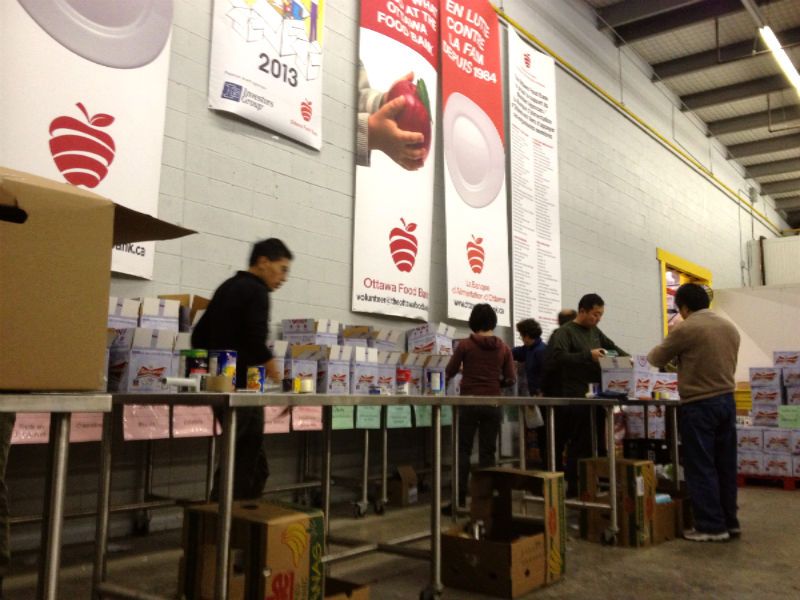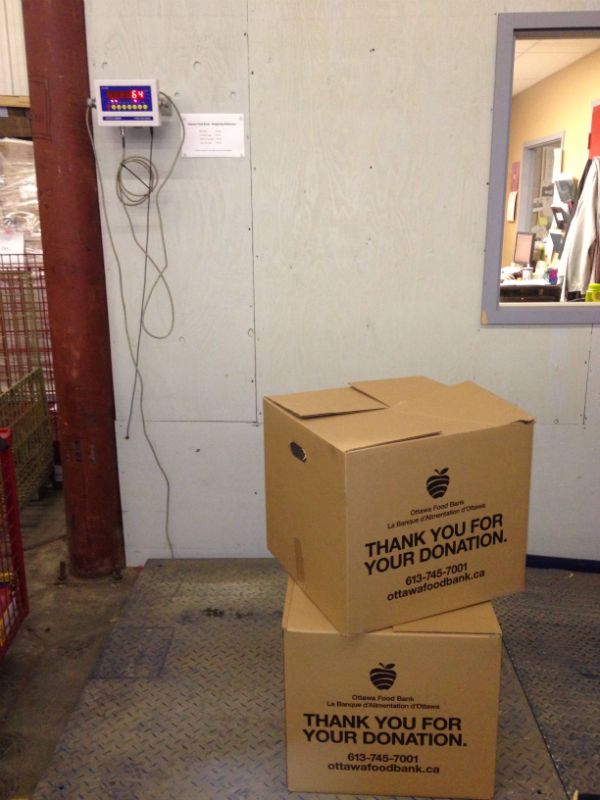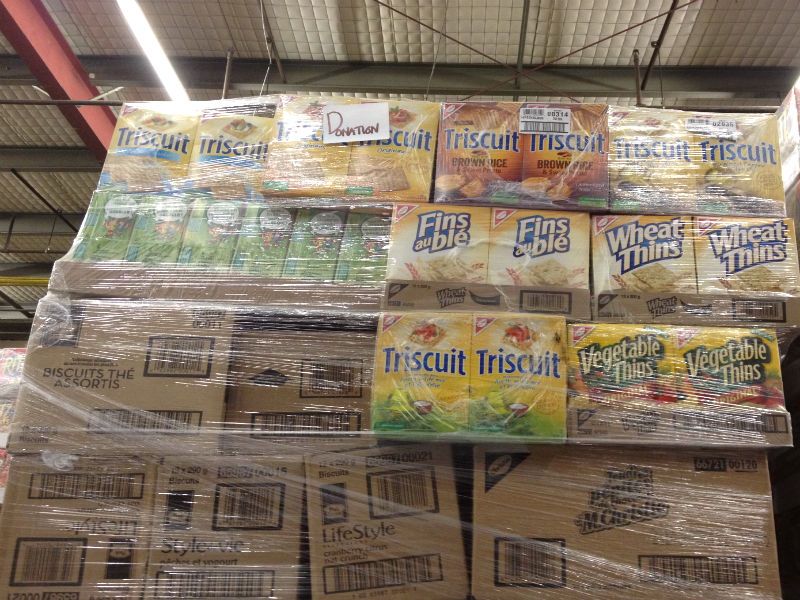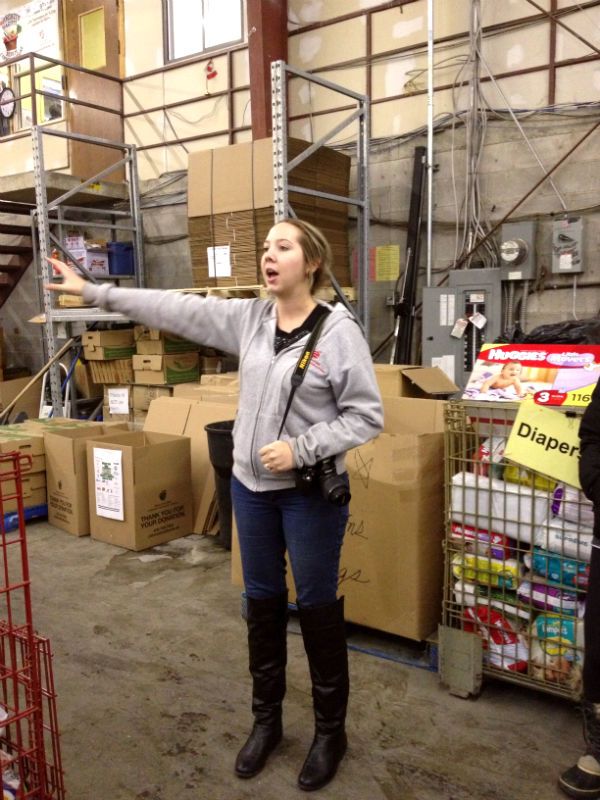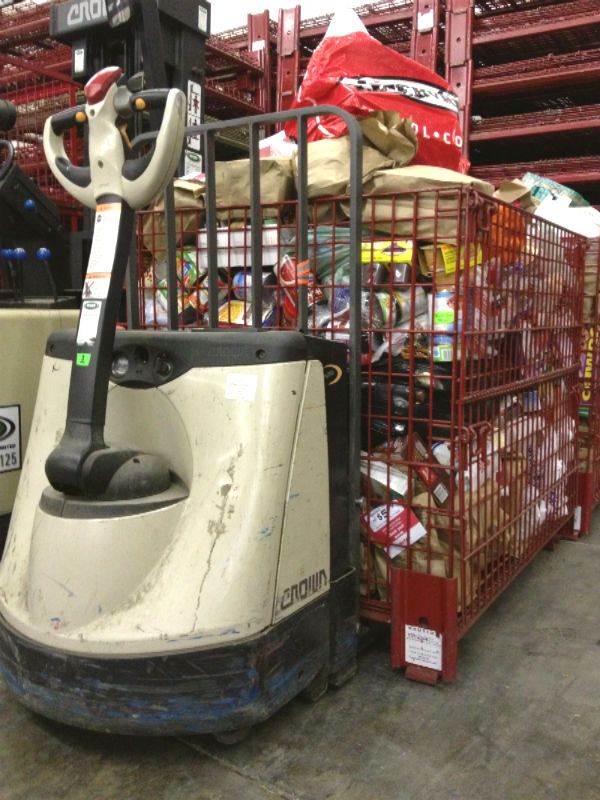By Brett Throop and Jordanna Tennebaum
It’s the busiest time of year at the Ottawa Food Bank’s warehouse in Gloucester. As shelves fill, volunteers cross their fingers that the food being collected will last after the season of giving has passed.
“The challenge is that we feed people every month, 12 months of the year,” said Michael Maidment, executive director of the Ottawa Food Bank. “It’s definitely more difficult to collect food after Christmas.”
Ottawa Food Bank event coordinator Maggie Rose said those who work at the food bank joke about waiting for the snow to fall for donations to start flooding in. Luckily the snow came early this year, and donations came with it.
Maidment said the holiday season is a big spur for people to donate. “People are feeling very charitable and they’re starting to get into that holiday spirit,” he said. Many families and corporations make collecting food and money donations part of their holiday events, Maidment said.
But this still might not be enough food to last the winter.
The Ottawa Food Bank estimates that it receives almost half of its annual donations during the holidays. Maidment expects the food being collected now will last until about mid-February. Donations plummet in January and February, “so we need to make sure that the inventory that we have in the warehouse can sustain families into that time as well,” Maidment said.
Adding their share to stock the food bank’s shelves on Tuesday were eight members of the local charity GoodGuysTri, who unloaded 1300 kilograms of donated goods collected during a month-long food drive.
“At this time of year the Ottawa Food Bank is on a number of people’s minds, because it is the holiday season, whether it be Eid, Hannukah, Christmas or whatnot,” said Mike Herzog, founder of GoodGuysTri.
Heightened awareness doesn’t necessarily result in the donation of healthy, balanced foods, however. For that reason, the Ottawa Food Bank is asking for donations from a list of healthy items they currently lack. Maidment said canned meat and fish, peanut butter, rice and whole wheat breakfast cereals are most needed right now.
The food bank also fundraises money for perishable foods like fresh fruits and vegetables that food drives aren’t able to collect. In fact, the food bank’s activities reach well beyond the traditional food drive. It runs a breakfast and after school snack program for children, a baby supply cupboard and donation programs for chicken, vegetables and other perishable goods.
Ottawa Public Health bolsters the food bank’s programs by helping those who access the donated goods meet their nutritional needs.
“The reality for those who access food bank products is that they’re at the mercy of donations,” said Jamie Hurst, a nutritionist with Ottawa Public Health. Public health staff make trips to the food bank to “provide clients of the food bank with knowledge on how to eat as best they can with foods that they’re given,” said Hurst. For the past year, public health staff have been doing this outreach work at food banks, English as a Second Language courses, local markets and community groups, reaching 17,000 people.
“If you have beans, tuna, chickpeas and rice, how can you make those into healthy and tasty meals? That’s what they’re addressing,” Hurst said.
The Ottawa Food Bank serves 48,000 people a month, 37 per cent of whom are children.
For Maidment, those numbers are troubling. “We know that there’s typically more demand than there are resources,” he said.
Pictured below are food donation boxes. Scroll over the items to learn more about their nutritional value.

